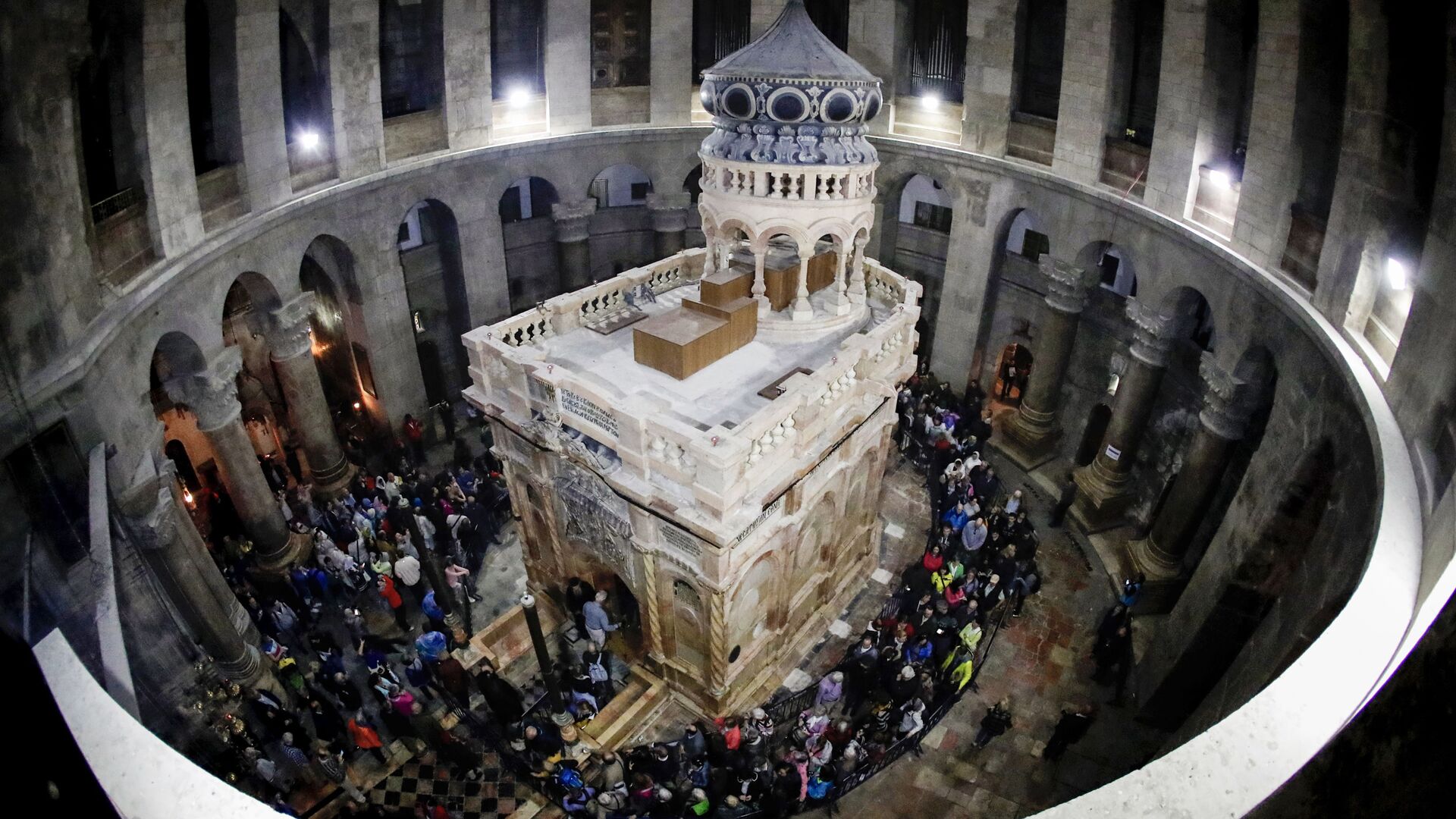Israel's Christian Community is Happy With Life in The Country, & a Community Rep Says He Knows Why

© AFP 2023 / Thomas Coex
Subscribe
Israeli law does not allow any type of discrimination against citizens based on their colour, gender, origin or ethnicity, granting Jews, Muslims and Christians equal rights. However, the state has been accused of mistreating its minorities but an Arab Christian from Haifa says this criticism is far from the truth.
Israel's Christian community grew by 1.4 percent in 2020. It now stands at 182,000 and 84 percent of that population says they are satisfied with the life in the country, the Central Bureau of Statistics found.
Happy with Life
Sharbel Maroun, a Christian Arab from the northern city of Haifa, says he can "totally relate" to these findings.
"We are all equal. A woman who gives birth, whether a Jew, Muslim or Christian, gets money. We have the same social rights. We get the same treatment in hospitals, and we have plenty of job opportunities in this country," he says.
According to Israeli law, the state doesn't discriminate against its citizens based on their religion, ethnicity, colour or gender. But the Jewish state has been repeatedly accused of applying a different set of laws towards its Muslim population and other minorities. It has also been accused of persecuting the Palestinians.
The sphere where this discrimination is most vivid is the military service. All Jewish citizens who reached the age of 18 are obliged to serve in the IDF, unless they have proven health problems or object for religious reasons.
Such minorities as the Druze or the Circassians are obliged to serve too. The Muslims and the Christians are simply not conscripted.
Maroun was one of those who did choose to enroll in the IDF. But he is one of very few.
In 2012, for example, it was reported that out of the 158,000 Christians who resided in Israel, only 97 volunteered to serve in the army.
Not Serving the Country
Recent reports suggest that this number is constantly growing but it is still rather insignificant. Maroun pins the blame of the low numbers on a "fear factor".
"Firstly, Many Christians reside in mixed towns and cities where they live next to the Muslims. As a result they prefer not to enroll, so as not to anger them. And, secondly, some relate to the Muslim Arabs and support them in their struggle for the sake of the Palestinians".
However, this is far from being the only reason. In 2013, a report conducted by Im Tirtzu, a conservative organisation aimed at promoting Zionism in Israel, found that many Christians fail to enrol in the IDF simply because they don't have enough information about the system. Nor do they have relevant religious services that are available for the Jewish population.
The same report also revealed that Christian youths face pressure from Muslim NGOs and politicians, who discourage them from serving in the army "of apartheid" that "occupies other people".
Joint List as a Problem?
"I don't buy this propaganda," says Maroun. "This propaganda stems from several politicians of the Joint Arab List. This party does more damage than good, and I wish the Arabs of Israel would find the guts to get rid of it," he added.
The Joint Arab List was created in the lead-up to the 2015 legislative elections, uniting five Arab majority parties. At the peak of their popularity, in 2020, they managed to garnish 15 out of 120 seats at the Israeli parliament, the Knesset, becoming the country's third largest political group.
The party that now unites four elements claims to represent the struggles and needs of the Arab citizens of Israel. But many have been slamming it for catering more to the pleas of the Palestinians, rather than ordinary Arab Israelis.
Many others could not forgive the party for not joining the forces with the coalition to tackle the high rates of unemployment in the Arab sector. Nor could they forgive that the issue of crime that has been engulfing many Arab towns and cities has not been solved.
That disappointment with the party and its politicians showed in the last round of elections that took place last March, when the party sank from its previous 15 to only 6 seats jn the legislature.
Yet, politicians of the political group didn't learn from their past mistakes. They continued to slam Israel and its government for its inequality towards minorities and for its unjust policies vis-a-vis the Palestinians.
"There is no apartheid here, and whoever says it can come and confront me. People are equal, and whoever doesn't like it, can go straight to the Ministry of the Interior, hand down their identity card and try their luck elsewhere," said Maroun.
"I am proud I live here. I am proud I have served in the IDF, and if I could I would have done it again," he added.


